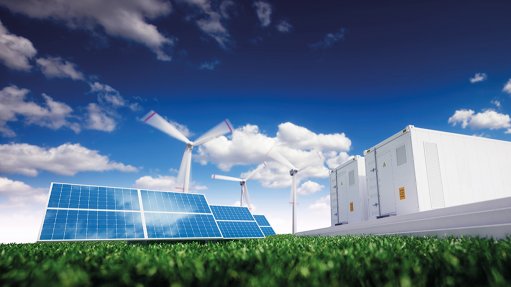
The world cannot decarbonise without Africa’s production of green hydrogen, hydrogen fuel cell company Hypowa CEO and trade association African Hydrogen Partnership SG and cofounder Siegfried Huegemann has said.
“It is just not possible,” he said during the second yearly Hydrogen Economy Discussion conference, in Johannesburg, on September 6.
Huegemann told attendees that Europe would be unable to meet its own green hydrogen demand as it sought to decarbonise its economy further, and would therefore become a net importer of hydrogen – much of which would have to come from Africa.
“There will be regions in the world that will become green energy importing regions – and Europe is one of those regions,” he pointed out.
Huegemann said that, as it stands, more than 80% of the European Union’s (EU’s) primary energy consumption is based on fossil fuels and nuclear energy. The EU still relies on more than 50% of its energy being imported, with more than 90% of its oil and petroleum, as well as about 90% of its natural gas also being imported.
To fully decarbonise, the EU would have no choice but to rearrange its energy mix to be based on batteries, on the one hand, and green hydrogen on the other.
“We can’t do it without hydrogen. It’s the only solution,” he said, emphasising that only hydrogen could produce enough clean energy at the scale required to run energy-intensive industries such as the steel, cement, mining and long-distance heavy trucking logistics industries.
Battery-based energy solutions – such as renewable energy technologies – would not be sufficient and would need to be heavily supported by hydrogen, he said.
“The EU is aiming to import ten-million tonnes a year of renewable hydrogen by 2030. That is a very ambitious goal. Even if it's only two-million or three-million tonnes a year by 2030, that is great progress,” Heugemann said.
For Africa, this would present significant opportunities, as the continent has a plethora of natural resources to produce green hydrogen at scale.
Not only would the export opportunity and the foreign direct investment provide a massive boost to Africa’s economy, but there would also be significant local demand for hydrogen as a clean energy source.
Hugemann said a series of challenges would, however, have to be overcome. These include a reduction in the cost of hydrogen production, which would require advancements in hydrogen production technology.
Further, a more stable and functional sociopolitical environment would have to be created, in addition to more efficient and focused economic processes and policies on which to build the African hydrogen economy.
“Africa has the leading potential [for hydrogen production] in the world, as a whole. If we all work together, it will drive down the cost, which is what we need to focus on for large-scale commercialisation,” he said.